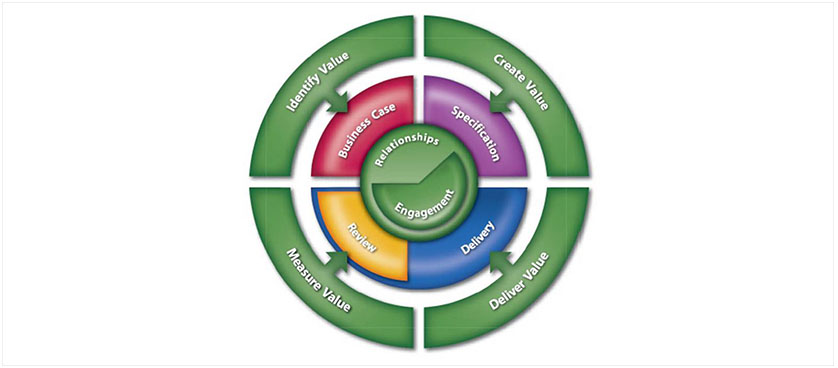Professional Services Performance Management – performance criteria and measures
Professional Services have some particularities that make them different from commercial activities in many respects, such as:
- The way they relate with the customer: they see themselves / are seen as subject matter experts in an area, thus an equilibrium between their advice and the customer needs must always be maintained;
- Internally, they might find it difficult to establish a culture and work practices that will reconcile both the more experienced (in many cases, the founders) and the more young and enthusiastic or to correctly assess the contribution and reward each individual within the organization.
Thus, there are at least two perspectives that the Professional Services firms must consider when addressing both their external and internal-focused performance issues.
On one hand, they have to attain the clients’ expectations in terms of quality, timeliness, adequacy of the solutions and services they provide (and these will often be formally measured by the customer himself).
On the other hand, they have to be able to attain internal alignment and correct evaluations of performance of the teams and individual consultants.
Regarding the first perspective, especially in the case of clients that are public authorities that resort to private consulting services, formal evaluation methodologies are being used.
In the public sector, it is considered that consultants are used to deliver a specific project or piece of research, also based on their recognition of the added value they can bring over a civil servant (UK Office of Government Commerce 2006). The UK based Office of Government Commerce (OGC), together with Management Consultancies Association and the Institute of Management Consultancy developed a framework for the value criteria in working with Professional Services representatives, aimed at identifying and expressing the value expectations at the beginning of the assignment that will also provide the baseline against which delivery can be assessed in the post-assignment stage (OGC 2006). In this context, an important focus is put on the flow of the various stages in the project, from the business case (which identifies the value needed to be delivered), to the development of the specifications (explaining how the value will be created), followed by the delivery of the value and, finally, the measurement of the value delivered, as shown in the image above.
The importance of having clear and correct performance standards for the Professional Services firms, mainly in the case of clients in the public sector, is outlined also by the fact that contracting them is not a matter of personal option of the public representative in charge, but it follows a specific public procurement procedure and it involves reporting to stakeholders on various levels, ultimately to the community itself, which is the final beneficiary (although not always directly) of the services.
Mike Cameron from Bozz Allen Hamilton (2004) suggested a three-levels Performance Work Statement (PWS) to be used in the procurement of Professional Services:
- Performance Requirements (describes measurable results that must be attained)
- Performance Standards (refers to the acceptable quality of these results)
- Performance Measurement (describes how measurement will be done)
This framework must be able to answer two simple questions (Cameron 2004):
- What problem are we trying to solve?
- How will we know when we solved it?
Thus, Professional Services firms must be aware and have good knowledge of what are their clients’ requirements in terms of performance and further on translate these standards and criteria into how they deliver their work and how they can make an assessment of their own. This assessment will not only reflect the alignment to customer requirements, but also the internal competences (in terms of people, resources, processes etc.).
smartKPIs.com contains more than 100 popular Key Performance Indicators (KPIs) used in the Professional Services industry, for businesses in Consulting, Accounting Services, Recruitment & Employment, Engineering or Legal Practice. To explore the KPI examples, click here.
References:
- Cameron, M (Bozz Allen Hamilton) 2004, Performance Criteria for Professional Services, Service Acquisition Center of Excellence Open Ceremony, November 18, 2004.
- smartKPIs.com, Key Performance Indicator Examples in the Professional Services Industry
- UK Office of Government Commerce 2006, What value do consultants add?
- OGC (2006)

Tags: Performance in UK, Performance Management, Performance Work Statement, Professional Services






